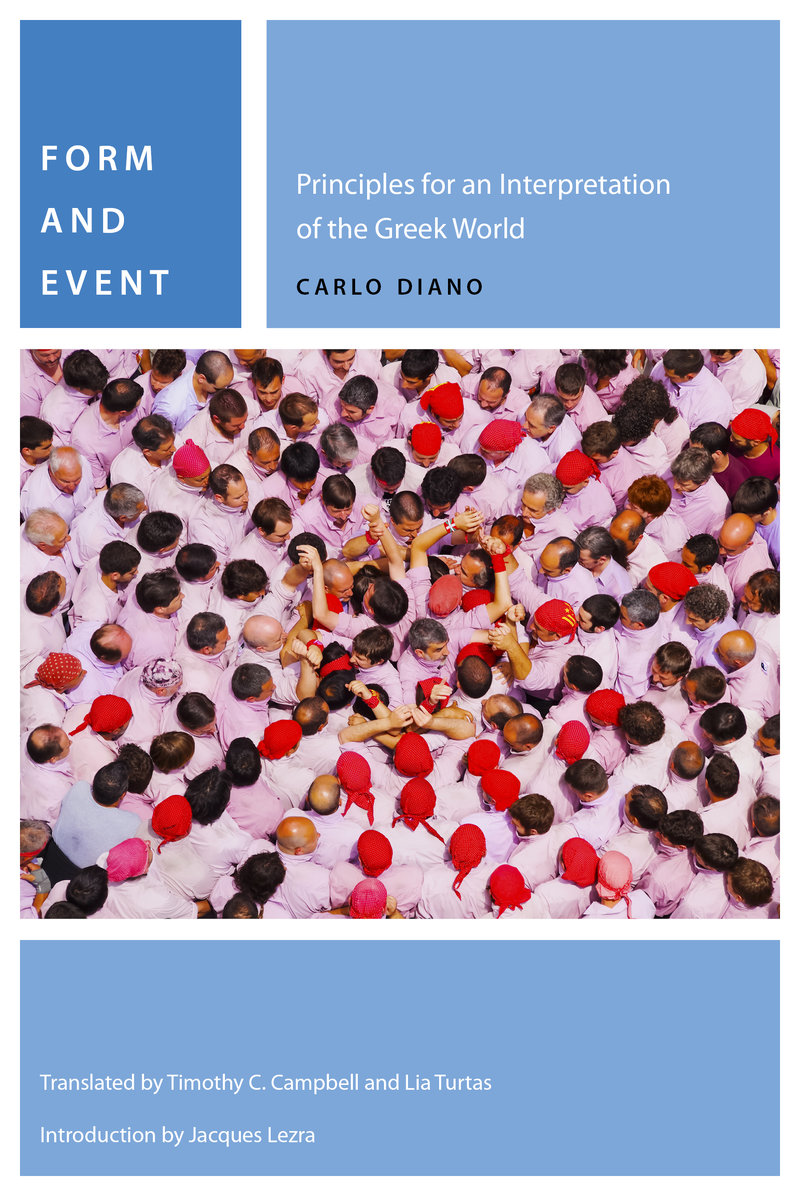Carlo Diano´s Form and Event has long been known in Europe as a major work not only for classical studies but even more for contemporary philosophy. Already available in Italian, French, Spanish, and Greek, it appears here in English for the first time, with a substantial Introduction by Jacques Lezra that situates the book in the genealogy of modern political philosophy.
Form and Event reads the two classical categories of its title phenomenologically across Aristotle, the Stoics, and especially Homer. By aligning Achilles with form and Odysseus with event, Diano links event to embodied and situated subjective experience that simultaneously finds its expression in a form that objectifies that experience. Form and event do not exist other than as abstractions for Diano but they do come together in an intermingling that Diano refers to as the eventic form. On Diano´s reading, eventic forms interweave subjectively situated and embodied experiences, observable in all domains of human and nonhuman life.
A stunning interpretation of Greek antiquity that continues to resonate since its publication in 1952, Form and Event anticipates the work of such French and Italian post-war thinkers as Gilles Deleuze, Alain Badiou, Roberto Esposito, and Giorgio Agamben.


